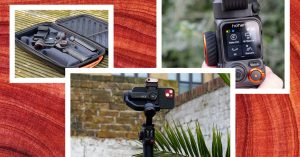My tween son has disabilities and is unable to walk or talk, which makes it tough to include him in activities. But a couple of years ago, I was thrilled to find a variety of adaptive skiing accommodations. For example, a skier with disabilities can rent or buy equipment like outriggers and braces to help control their speed and balance on the mountain. For others, like my son who needs more support, participants get comfortable in a sit-ski and are guided through the snow by a professional. Watching my son swish down the mountain grinning from ear to ear was an amazing sight.
Since then, I’ve wanted to learn more about how my son, and the rest of our family, can get out on the slopes. And I recently found out that there are many programs around the US that offer adaptive skiing. Read below to find out more.
In the Northeastern US
With over 400 volunteer instructors throughout their various programs, the folks at Vermont Adaptive Ski and Sports have been working with people with a range of disabilities at quite a few locations across Vermont for over 37 years. Participants can sign up for either a half-day ($100) or full-day lesson ($150) which includes a lift ticket, adaptive equipment, and the lesson from an instructor, but they will never turn someone away based on an inability to pay. The company offers scholarships and a sliding scale fee system to those in need. Start by registering on the website and filling out a profile so the team knows how to support you or your skier the best.
“Our program is very, very individualized to meet the needs of the family or the person,” says Kim Jackson, marketing director at Vermont Adaptive. “We really look individually at a person’s needs and what adaptations we need to make to get that person in a canoe or out on a ski or whatever activity they want to do.”
You’ll also receive a companion ticket, so you, a friend, or a family member can ski alongside the participant. Otherwise, their staff and instructors are trained to accommodate the individual on their own. Depending on the location of the lesson, you can watch from the bottom of the slope or sign up for your own lesson nearby at the host resort’s ski school.
“Part of our philosophy is we are trying to break down barriers to access the outdoors,” Jackson says. “We’re trying to make this as inclusive as possible and level the playing field. Within a five-hour drive of Vermont, there are about 13 million people who identify as living with a disability.”
Further South
Down in West Virginia, individuals with disabilities can enjoy adaptive skiing seven days a week with Challenged Athletes of West Virginia, a nonprofit which has been dedicated to adaptive sports since 1996. At its Silver Creek location, which is separate from the main skiing area, one session ($80) includes a lift ticket and adaptive equipment, or you can purchase a three-pack for $200.
The organization offers accommodations for all types of disabilities. For leg amputees, it offers three-track or four-track skiing with the help of outriggers. “For stand up skiers who need a bit more support, we’ll use equipment that connects their ski to an instructor to make what we call the pizza wedge in order to stop if they don’t have full control,” says Carol Woody, the executive director at Challenged Athletes of West Virginia. “That shape helps slow them down.”







